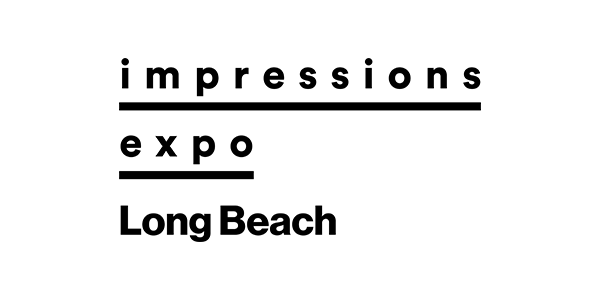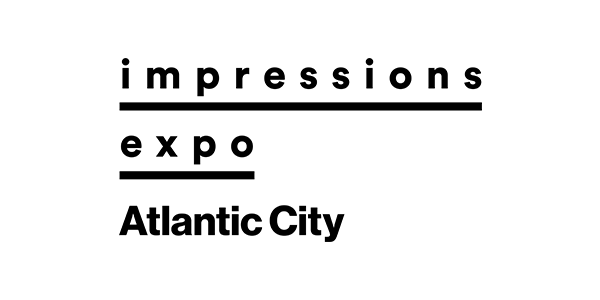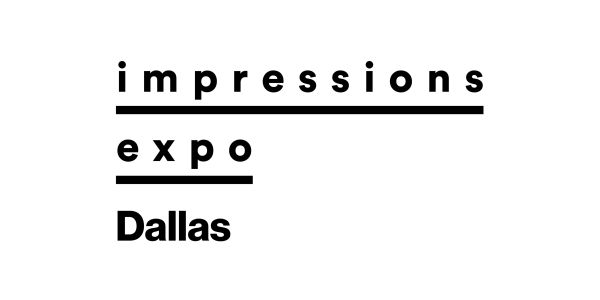In this excerpt from the Impressions “Ask the Experts” online video series, Impressions Content Director, Adam Cort, talks with Jed Seifert, co-founder of Ohio-based decorator Stakes Manufacturing about how hiring the disabled doesn’t just provide an opportunity for the person being hired—it’s also good business
Adam Cort: To start out, what I find most striking about hiring people with disabilities as you describe it is that when done correctly it really is a kind of ultimate win-win. As an employer, you’re not only helping someone with disabilities lead a productive, fulfilling life, you’re also, in many cases, affording yourself the opportunity to hire some of the best workers you could ever hope for.

Jed (right) and his brother, Darren, celebrate Stakes Manufacturing’s recent recognition by APSE for outstanding work in offering opportunities to workers with disabilities.
Photo courtesy of Stakes Manufacturing
Jed Seifert: Absolutely. When you’re hiring people with disabilities, it has to be meaningful employment. It has to be mutually beneficial. If you’re doing it for charity, if you’re doing it to get the warm and fuzzies, it’s going to be short-lived. You have to have accountability. You have to have a performance metrics…at the same time, at Stakes what we’ve seen is that the benefits that the company received and the benefits the non-disabled employees received were just as substantial as the individuals with disabilities. It has taught our managers and our employees empathy and teamwork. It brought people together in a manner that we had never seen, both within individual departments and cross-departmental. It helped our managers become better managers, because they were forced into tailoring their management and training style to the individuals with disabilities…[which] the reality is they should be doing that with all employees. Our goal and job as leaders, owners, managers, supervisors is to really cultivate people’s strengths and mitigate their weaknesses, to put them in a position to be successful. It’s no different with people with disabilities. And while we often talk about people’s disabilities, a lot of folks with disabilities have superpowers in other ways. Somebody with autism, for example, might have certain social challenges. But the flip side of that is they’re more detail oriented than your average person without disabilities.
AC: Could you give me a few examples of some of the people with disabilities now working at Stakes Manufacturing and the roles they are filling?
JS: We have a spectrum of people with disabilities who work for us. We’ve got folks with autism, Asperger’s, cerebral palsy, some that aren’t even diagnosed right, but are definitely on the spectrum. We started out in our warehouse for a few reasons. To me it was sort of the most natural fit… It was also because our manager in the warehouse is one of our most empathetic managers, and we wanted to make sure we had buy-in out the gate, because it can be intimidating for folks who have never had somebody with disabilities in their lives. Since then we’ve expanded beyond that. Our top shipper, for example, out of about 30 shippers is a gentleman with autism. He applied to work with us because he saw in one of our ads on Indeed.com that we hire people with all abilities. He’s got speed, accuracy and, by the way, he’s got perfect attendance on the year and he’s excited to come to work….We [also] expanded into our heat-transfer application department. There was some hesitation at first. We’re using 300-degree palettes. Are they going to close them on their hands? But the reality is, once we did the safety audit to make sure it was going to be a good position and how we trained and all that, we realized that all the things that we did to make sure that we were going to be safe for the disabled we should have been doing with all employees from the beginning. We’ve also got folks that are helping with our cleaning. We’ve got folks that are water spiders moving stuff around he facility. We have folks who are running three-quarters-of-a-million-dollar DTG (direct-to-garment) equipment. At this point, roughly, 10 percent of our staff has developmental disabilities.
AC: I wonder if you could talk a little bit about the organizations out there expressly designed to not only help with the hiring process but ensure disabled employees are successful in the workplace? You’ve mentioned in the past that if you had to pay for a consultant to do this same kind of work, you’d be paying a lot of money for it. And yet these support networks are free.
JS: The reality is it’s not that people don’t want to hire with people with disabilities. It’s that they either think they don’t have the resources to do it, they don’t have the know-how to do it, or it’s going to impact their bottom line. What disability employment service providers do is look at all your open positions to see what

By making accommodations for workers with disabilities, you will likely be creating a better work environment for non-disabled employees as well. Photo courtesy of Stakes Manufacturing
might make a good fit after which they’ll help with hiring and onboarding. You might think it’s just a gentleman who’s going to work in the warehouse or just somebody who’s going to do a physical task or something custodial. But the reality is people with disabilities learn from repetition. Ninety-five percent of what we do as printers and fulfillers is repetitive. That can be monotonous to people who don’t have disabilities, but it’s actually where people with disabilities flourish, where they feel at home. [This includes] high-skilled repetition. I’ll give you an example. I linked up a screen-printer with a local disability employment service. The service went in and they did the audit. This screen printer thought the person they hired was going to be cleaning screens, doing custodial work. Well, turns out the best fit position for the candidates they had was doing all their order entry. They’re getting all these PDFs and purchase orders, and then they’re going and plugging them into their system. Certain disabilities like autism, make people actually more detail oriented than most. So it makes that a perfect position…Getting back to [disability employment service providers], they’ll come in, they’ll do an audit, and they will look at all of your open positions. Then what they’ll do is find, screen, help hire, on-board and train these employees for you, all of which is at no cost to the employer. You’re talking about basically having a free hiring agency, a free training agency. They’ll also train your managers on how to best work with that employee and provide ongoing support and job coaching. These folks will really work with you. If you get into a situation with an employee and you don’t know how to handle it, your managers don’t need to know how to handle it. You just pick up the phone and call the job coach—or the job coach might even be on site with some folks who need a higher level of support.
AC: I wonder if you could give us the names of a few of the disability employment service providers out there that would be a good place to start for employers interested in possibly hiring people with disabilities.
JS: Absolutely. Number one—every state has a vocational rehabilitation office, a federally funded office. It’s not just dedicated to people with disabilities, but one of the core things they do for the disabled community is help them find employment and support employers. They’re different from state to state. Some of them will provide all the services that I mentioned…some will refer you to a local agency. At the local agency side, it’s just like any other hiring agency. Another great place to start is The Arc (a not-for-profit dedicated to advocating for people with disabilities and their families). They are a fantastic global organization that has local chapters in every state. Some of their chapters actually provide these services. If they don’t, they’ll refer you to some local providers. Another is APSE (the Association of People Supporting Employment First) a national trade organization for disability, employment service providers. Stakes actually had the honor of being named national employer of the year by them last year, which is one of our greatest accomplishments, and was really awesome because it got us working even closer with them.
AC: What kind of companies make for a good fit in terms of hiring disabilities? Also, are we talking full-time, part-time, or both?
JS: Every single company is a good fit. Your 10-person company has a company culture, has jobs, has openings, has things that need to be done that are no different than your $1 billion dollar company that’s publicly traded. At our facility we tend to only hire people who are doing full-time work. But the reality is, there’s a huge portion of the disabled population that literally can’t work full time because of archaic federal policies that say, if they work over a certain number of hours or make over a certain amount of money, they’ll lose their federal benefits. So, there’s a ton of folks that literally only want part-time jobs. We also talk a lot about “creative employment” in the disabled community. Maybe you don’t have a full-time gig open. But maybe Johnny in client services has two hours of data entry a day that he does, and Sarah over in the warehouse has an hour of labeling that she needs to do a day, and Jimmy over in whatever other department has XYZ to do. You can piecemeal little parts of all these things to create a single full-time position, which will free up the other employees to be more productive. Again, there is no one-size-fits-all. It really just depends on what your needs are. It doesn’t matter if you’re a mom-and-pop shop or a multi-billion-dollar corporation. It will have the same impact.
Jed Seifert co-founded Stakes Manufacturing, a provider of both premium printed apparel products and fulfillment services, in 2019. Since then, the company has grown to where it is now a major player in the industry. Jed, whose brother, Darren, has Fragile X, a genetic condition that can result in a host of developmental and learning disabilities, is also a dedicated advocate for helping disabled but still perfectly capable individuals find productive work in the wider world. As part of effort, he has spoken at a number Shop Talk sessions at Impressions Expo. To contact Jed directly, e-mail [email protected].
Updated April 18, 2025





